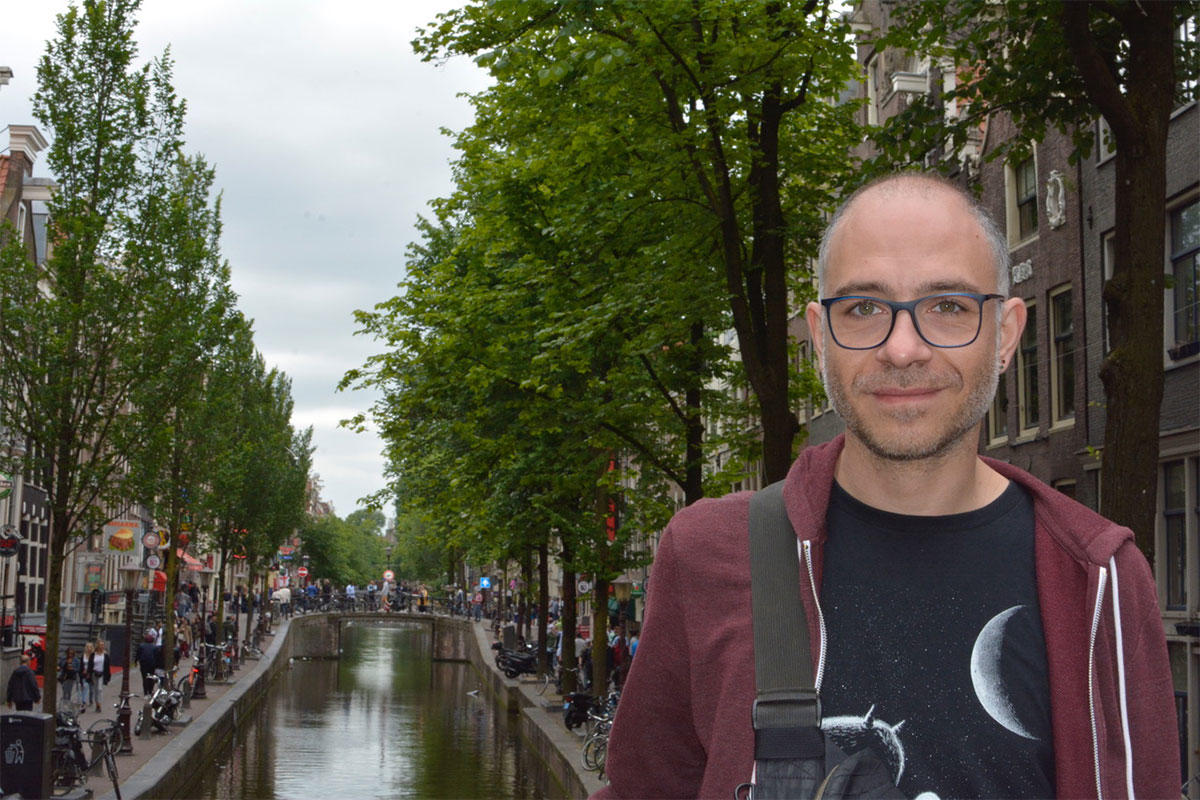Op-Ed: Lesson Learned?
Assistant Professor of Philosophy Rami El Ali offers observations on the impact of COVID-19 and the preparedness of global societies.
Many of us are experiencing our first pandemic with the outbreak of COVID-19. But human history reveals that this pandemic is not unprecedented, and that various scientific forecasts have warned that it was only a matter of time before a pandemic like COVID-19 struck.
From this perspective it looks like we should have been prepared. And in some ways we were. The pandemic did not spread unchecked but in many places the response was slow, the impact downplayed, hospitals understaffed and underequipped, and not enough could be done to protect the vulnerable.
The pandemic effectively tested the capacities and resilience of our modern structures much as a car manufacturer might conduct safety crash tests. While no structure is expected to withstand every breakdown, one expects the structures we depend on to handle likely breakdowns. A car frame that collapses after driving over a large speed bump is unlikely to impress us whatever its other virtues.
Though a full assessment of our structures would go beyond the scope of this piece, what I will offer are four broad observations about the pandemic and its consequences. These will allow us to draw a general principle that we might adopt by way of better facing the future.
First, the pandemic revealed that perceived differences between countries, states, cultures, and peoples are inconsequential from a biological perspective. That China and Argentina were on opposite sides of the globe, that the US differed politically, culturally, and linguistically from China, that Saudi Arabia was at war with Yemen, and that Palestine and Israel were in conflict did not matter. The virus indiscriminately infected people everywhere.
Second, the virus revealed the extent to which we are materially and psychologically co-implicated. Long supply chains and our heavy dependence on them meant that a factory closing on one side of the globe had implications for the other side. In addition to this material need for one another was a psychological desire to be around one another. ‘Social distancing’ was a poor name for what people engaged in. Though physical distances were kept, the widespread use of videoconferencing, social media, COVID-19 memes, and the internet as a whole showed that people were far from being socially distant.
Third, it was clear that our structures embed deep injustices. The pandemic isolated people into very different physical and economic spheres. Some lost their jobs and homes, while others merely suffered a slowdown in their business with little impact on their comfortable lifestyles. Worse, it became clear that our structures harbored vicious and perverse ways of thinking. We saw discourses endorsing continued production, trade, and consumption at the cost of people’s wellbeing. Rather than viewing everyday businesses as a means to achieve people’s ends, the running of these businesses was misconstrued as an end in itself.
Finally, the psychological effects of physical isolation revealed, among other things, that ‘normal’ life can sometimes offer shallow existential comforts. Our more personal issues were sometimes sidelined and concealed by the rapid pace of pre-pandemic life.
Recognizing these issues offers insights for designing a better and more resilient future. Given our shared vulnerabilities and investments in one another, it seems that a two-way principle would serve us best. We need local investments that contribute to a global world picture and global investments that contribute to the local picture. Local investments include working toward productive local industries that not only sustain the local economy, but also contribute to exports that fulfill global human needs. Psychologically, investments in our personal wellbeing and projects make us more self-sustaining and better able to positively contribute to others’ personal lives.
Conversely, as nations we need to globally invest in a unified outlook that in turn contributes to local sustainability. The many divisive ideas and mutually hostile treatment we see embodied in overly competitive economies, the exploitation of nature, war, racism, sexism, and xenophobia, are all at best shortsighted strategies given our shared biology and planet, and they isolate and harm individual societies.
COVID-19 may seem disastrous. But it is also a minor nuisance by comparison to the predicted effects of global warming, which earth’s history also bears out. To be ready we need to avoid an outlook that is too local because this will divide and weaken us, and also avoid an outlook that is too global because it will leave individual communities insufficiently self-sustaining in the face of network breakdowns.
In Lebanon this two-way principle has clear implications. Locally, our communities are far from self-sustaining and contribute little on the world stage. And globally, we are implicated in many unpleasant relations and enmities both internationally and within our immediate surroundings. Though old habits die hard, hopefully the reality of COVID-19 and its effects - which remain uncertain at this stage - can convince us that old or not, some habits need to change.
Dr. Ali is the director of the Philosophy Program in the School of Arts and Sciences. His research focuses on the philosophy of mind with an emphasis on perception. He is currently completing a monograph on sensory misperception.
